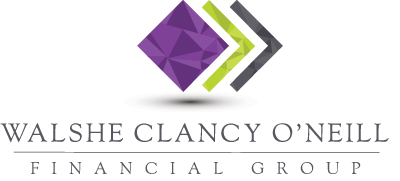- August 31, 2021
- Posted by: Walshe Clancy O'Neill Financial Group
- Category: Life

Procrastination is a hard habit to break, and something even the most accomplished struggle with at times. Even when we know that completing a task may be beneficial for our lives, improve our wellbeing or provide a sense of achievement, many of us still struggle to start projects and complete tasks.
Of course, not everyone finds it easy to launch straight in to a task or activity, it might be as simple as cleaning the house, revisiting your budget or a couch to 5km challenge, but understanding why you procrastinate can help you can overcome your blocks.
Some enjoy the rush of finishing a task at the last minute, preferring to work under pressure while others may get caught in what’s called ‘analysis paralysis’, overthinking something so much that they never get around to getting started. i Others may self-sabotage, preferring to not start a task or work towards a goal as they feel they don’t have the ability to complete it to their desired standard.
Regardless of the reason why you drag your feet, here are some tips to minimise the time you spend procrastinating and start accomplishing your goals.
Tips for getting things done
1. Make a detailed list
A ‘To Do’ list isn’t just a reminder of everything you need to get done. A well organised list can help you put the amount of work you have in to context, and prioritise tasks accurately.
Try borrowing this simple technique from the project management field. Take big goals or projects and break them down, as far as possible, in to individual tasks. For example, under a heading of ‘renovate spare room’, you might have tasks like ‘get electrician quote’, ‘get flooring quote’, ‘choose paint colour’, ‘buy paint’, etc. As a bonus, ticking off lots of little things feels good and helps keep you motivated.
2. Be self-aware
Next time you realise you have procrastinated, try to identify what you did instead – and why. Did you clean and organise your work area first? Did you put someone else’s request for help before your own task? Being self-aware is the first step towards stopping that behaviour next time it occurs.
3. Know your energy levels
When you’re planning a series of tasks, consider what your energy levels will be like at different times of the day. Tackle the most complex and difficult tasks early – perhaps after that first coffee of the day – and leave the easy stuff for when your energy (and concentration) dips.
4. Look at big picture
Some tasks can seem pointless or mundane when you take them out of context. But chances are they’re part of a larger picture or long term goal. So it’s important to keep the bigger picture front of mind. When you find yourself putting something off, try to visualise how it’s connected to your big picture. For example, if you’re putting off reviewing your household expenses, remember that any savings you identify can be put towards something more exciting.
5. Delegate and/or ask for help
Procrastination is often a result of looking at the amount of work you have to do, and feeling exhausted before you even start. The thing is, you might not have as much on your plate as you think.
Try identifying tasks you’re actually taking on for people who could do it themselves (hello, cleaning kids’ rooms). Consider what you could delegate to someone else – especially if that someone could do it more efficiently. And don’t be afraid to ask for help when you really need it.
Get started…
Above all, the biggest key to accomplishing your goals is just getting started, putting one foot in front of the other. The Zeigarnik effect developed in the 1920’s is one of the simplest productivity methods for beating procrastination.ii Studies showed that people remembered incomplete or interrupted tasks better than completed tasks, which means a partially finished project will weigh on your mind, compelling you to finish it.
So if you’re struggling to get started on a new project, it just takes one simple step, try something easy first to put you on the path to success.
If require any assistance with your business and/or personal financial affairs (taxation, wealth management, mortgage broking), feel free to contact us.
